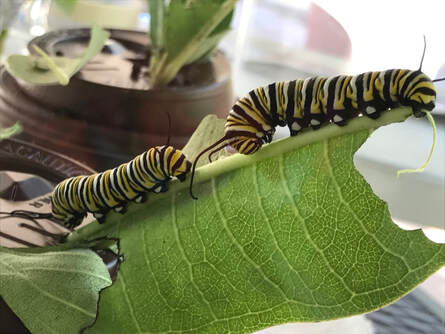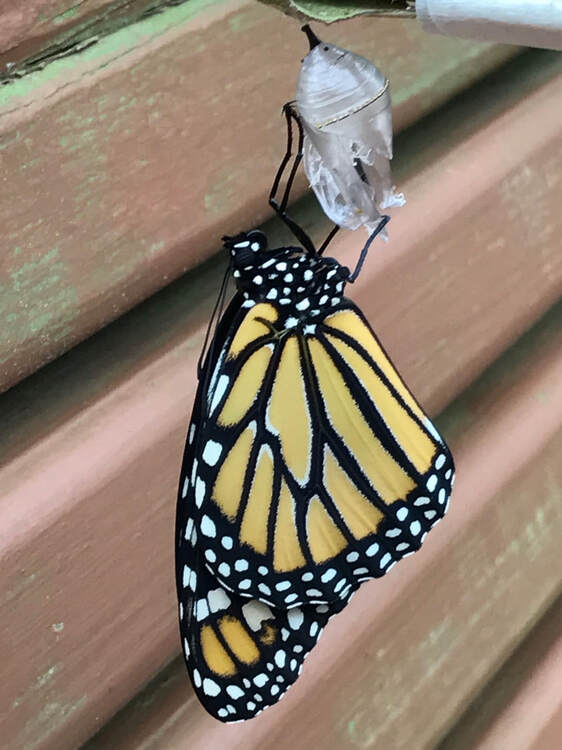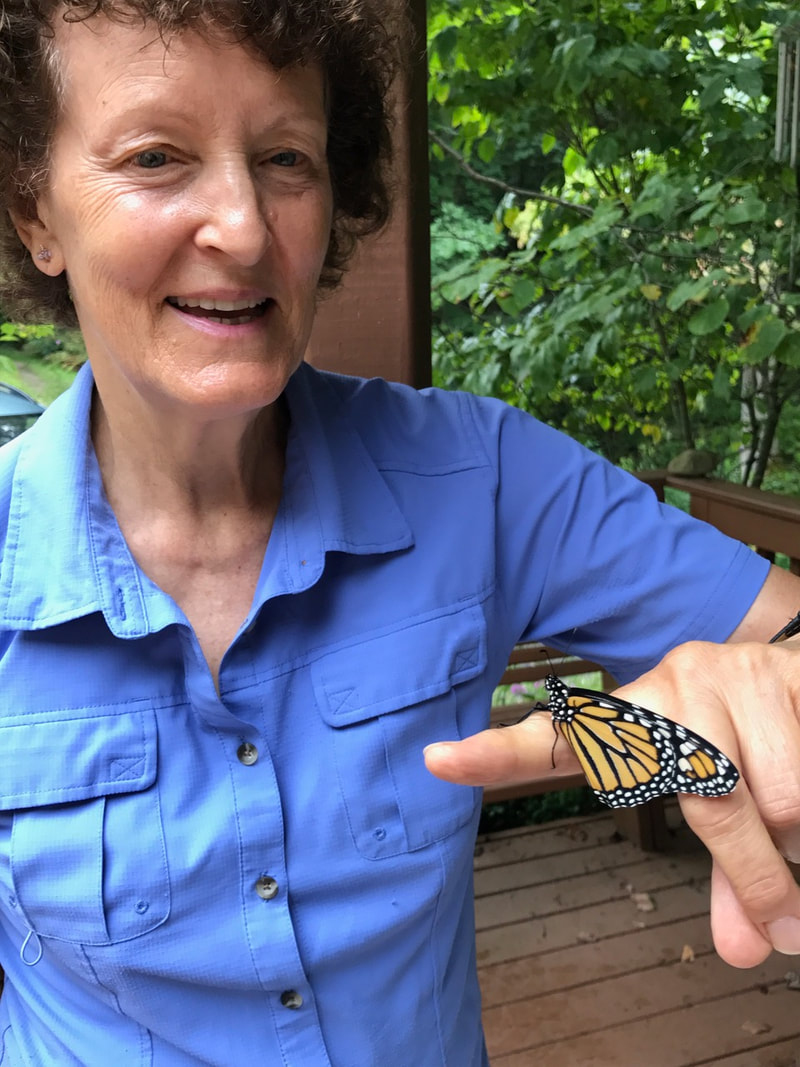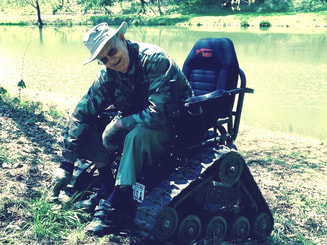|
How did you first become interested in Monarch butterflies?
 Monarch butterfly caterpillars on milkweed leaves; Photo: Carolyn Smith Monarch butterfly caterpillars on milkweed leaves; Photo: Carolyn Smith What is the importance of Monarch butterflies? Why do we monitor the different phases of their lives (egg, caterpillar and butterfly)? Is this a local, statewide, national, or international effort? Carolyn explained that Monarchs, like polar bears, are an iconic species whose future is not assured. “Monarchs undertake an amazing migration each year, whose secrets scientists are still trying to unlock. But their numbers have declined so much that the migration is at risk,” she said. “A number of groups across North America came together to create the Monarch Joint Venture, a partnership of nonprofits, state agencies and academic programs trying to conserve the monarch migration. One of the partners is the Monarch Larva Monitoring Project (MLMP) at the University of Wisconsin. Since 1997 its scientists have enlisted the help of citizen scientists to collect information on Monarch distribution and milkweed habitat. Carolyn has established her farm as a registered site where she and other volunteers collect data on Monarchs, which is then reported to MLMP. “Citizen scientists like our monitoring group are studying all stages of Monarchs from egg to butterfly in order to provide data to researchers,” she explained. “These data have informed scientists on what threatens Monarchs and what role people can play to help them survive.” Carolyn noted that data have led scientists to confirm that the early stages are when the greatest mortality occurs. What is involved in monitoring Monarchs? Does it take special skills or training? Carolyn explained that Monarch monitoring requires volunteers to learn what the different instars (larval stages of caterpillars) look like, and where to look on a plant for eggs and caterpillars. “It’s not difficult,” she said, “but it definitely takes some practice for most folks to learn to correctly identify what instar they are seeing.” She related how excited her monitoring group gets when they find the first egg, the first caterpillar, or see adult Monarchs flying around the milkweed patch. “There is such excitement and joy when you find one of these delicate creatures and know that you are helping to assure that Monarchs will continue to be enjoyed by people everywhere,” she explained.  Monarch butterfly; Photo: Carolyn Smith Monarch butterfly; Photo: Carolyn Smith Are Monarch populations increasing, decreasing or staying the same? “The data show differences in Monarch population totals from year to year, sometimes up and sometimes down. But the overall trend is clearly a marked decline,” Carolyn noted. She said that between last year’s and this year’s numbers, there was a 22% drop in the number of Monarchs that overwintered in Mexico, where most eastern Monarchs go to spend the winter. What are the threats to Monarch survival? Carolyn said that Monarchs have a lot of predators, including birds, spiders and grasshoppers. “But the loss of habitat is one of the biggest threats to Monarch populations,” she noted. That has been exacerbated by the broad application of insecticides that many farmers use. “Over the last 20 years, ‘Roundup-ready’ crops are being planted and entire fields are being sprayed, as opposed to selective spraying that had been the practice before,” Carolyn explained. There has also been a loss of overwintering habitat in Mexico. What can ORMN members and others do to help support Monarch butterflies? “Plant milkweed and nectar plants,” she said. She noted that even people who live in cities and towns can help Monarchs by planting the food they need and the milkweed they require to lay their eggs. Carolyn encourages everyone to talk to people about Monarchs. “Just sharing your own admiration of these beautiful creatures may change someone’s behavior.” She shared a conversation she had at her local gym with another member, who then became inspired to plant milkwood and native wildflowers on her property. “Every effort is important,” Carolyn emphasized. “If each one of us told five people about Monarchs, and those five people told five people – you get the picture!” Interviewed by Charlene Uhl March 2023
0 Comments
Your comment will be posted after it is approved.
Leave a Reply. |
AuthorWrite something about yourself. No need to be fancy, just an overview. Archives
December 2023
Categories
All
|


 RSS Feed
RSS Feed